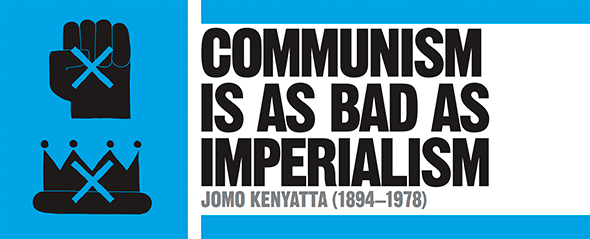
IN CONTEXT
Post-colonialism
Conservative pan-Africanism
1895 The protectorate of British East Africa emerges from British trading interests in East Africa.
1952–59 Kenya is in a state of emergency during a pro-independence rebellion by the Mau Mau.
1961 In Belgrade in modern-day Serbia, the Non-Aligned Movement is founded for countries wishing to be independent of superpowers.
1963 The Organization of African Unity (OAU) is founded to oppose colonialism in Africa.
1968 Britain’s last African colonies gain independence.
Jomo Kenyatta was one of the leading figures in Kenya’s independence from British colonial rule, becoming its first prime minister and president in the post-colonial era. A political moderate, he pursued a program of gradual change, rather than dramatic revolution.
External threats
Kenyatta’s ideas melded anti-colonialism and anti-communism. He was fiercely opposed to white rule in Africa, and promoted the idea of Kenyan independence through the establishment of the Kenyan African National Union. Pursuing a mixed-market economic program, Kenya was opened up to foreign investment and developed a foreign policy that was pro-Western and anti-communist.
Post-colonial nations, Kenyatta believed, were in danger of becoming exploited by external forces in order to consolidate the position of other nations on the world stage. To secure genuine independence, it would not be possible to tolerate the external influence that came hand-in-hand with Soviet communism. In this sense, the threats posed by communism could be as restrictive to Kenyan self-determination as colonial rule.

Leaders of newly independent East African states—Julius Nyerere of Tanganyika, Milton Obote of Uganda, and Kenyatta—met in Nairobi in 1964 to discuss their post-colonial future.
See also: Manabendra Nath Roy • Nelson Mandela • Frantz Fanon • Che Guevara
